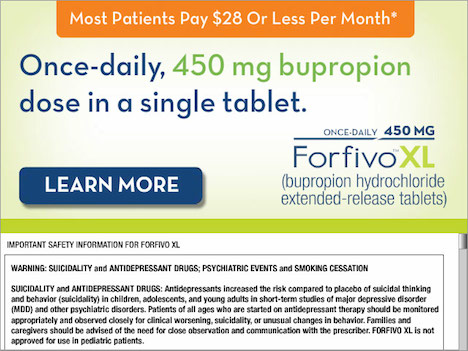
 |
|
 |
|
|
Advertisement 
Advertisement 
|
September 3, 2014
Aspirin Reduces VTE Risk When Other Anticoagulants
Sydney, Australia—Venous thromboembolism (VTE) patients who can’t or won’t take long-term anticoagulant drugs have another option: aspirin.
Are Not Appropriate That’s according to a new study, published recently in the journal Circulation, which finds that aspirin can reduce the risk of recurring blood clots by up to 42%. While much less effective than alternative medications, aspirin also is significantly cheaper and generally causes fewer side effects, the researchers note. “The treatment effect of aspirin is less than can be achieved with warfarin or other new generation direct thrombin inhibitors, which can achieve more than an 80% reduction in adverse circulatory and cardiopulmonary events,” noted lead author John Simes, MD, of the National Health and Medical Research Council Trials Centre and professor at the University of Sydney in Australia. “However, aspirin represents a useful treatment option for patients who are not candidates for anticoagulant drugs because of the expense or the increased risk of bleeding associated with anticoagulants.” Patients who develop blood clots in their veins without obvious cause have an average 10% risk of another clot within the first year and a 5% risk ever year thereafter, according to background in the article. “The treatment is warfarin or a newer anticoagulant usually given for at least six to 12 months to prevent a further blood clot,” Simes explained. “However, these people continue to be at risk.” For the International Collaboration of Aspirin Trials for Recurrent Venous Thromboembolism study, a combined analysis of two similar independent studies, 1,224 patients who received 100 mg of aspirin a day to treat blood clots were monitored for at least 2 years. Compared to patients receiving placebo, those who took 100 mg daily of aspirin had an overall one-third reduction in the risk of thromboembolism, deep vein thrombosis (DVT), and pulmonary embolism as well as myocardial infarction, stroke, or cardiovascular death. “Aspirin after anticoagulant treatment reduces the overall risk of recurrence by more than a third in a broad cross-section of patients with a first unprovoked VTE, without significantly increasing the risk of bleeding,” study authors conclude. Among the advantages of aspirin, added co-author Cecilia Becattini, MD, is that the common drug “does not require laboratory monitoring, and is associated with about a 10-fold lower incidence of bleeding compared with oral anticoagulants. We are convinced that it will be an alternative for extended prevention of venous thromboembolism after six months of anticoagulant treatment.” Simes emphasized that the recommendation is not to replace anticoagulation therapy with aspirin but to use it for “patients who are stopping anticoagulant therapy or for whom such treatments are considered unsuitable,” adding that, despite its lower effectiveness, aspiring is inexpensive, easily obtainable, safe, and familiar worldwide. “Aspirin will be ideal in the many countries where prolonged anticoagulant treatment is too expensive,” he pointed out. “A major benefit of this treatment is its cost-effectiveness. Aspirin is cheap, but it will save the treatment costs of the many recurrent clots that are prevented. This could mean a saving of millions of healthcare dollars worldwide.” |
U.S. Pharmacist Social Connect

 |
|

